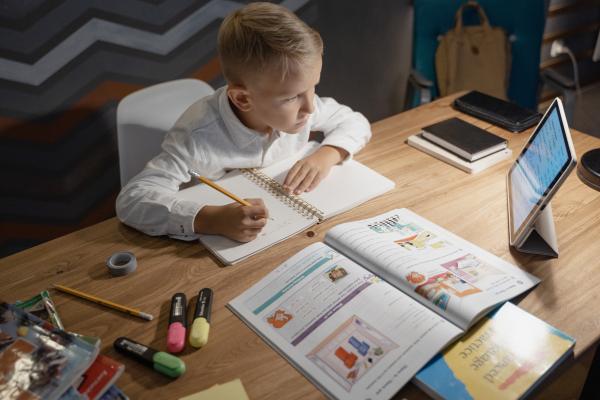
There are an estimated 7.6 billion people in the world, and it is safe to say that our brains are all very different. There is no one size fits all approach when it comes to learning new things but there have been many breakthroughs in science that have helped to understand how the brain works when we learn. Learn how to encourage productivity for your children through the facts listed below.
Playing Instruments Increases Your Memory
When a child learns to play a musical instrument, it benefits them in so many ways. Children will learn skills like patience, problem-solving, creativity and physical coordination. Playing instruments allows children to make their own choices and express who they really are in a healthy way. Music is also great way to expose children to new cultures which furthers appreciation for the instrument they’re playing.
Studies conducted at Northwestern University have shown that music training helps to increase memory retention. Brain researcher Nina Kraus said that "music is a resource that tones the brain for auditory fitness." Music inspires the brain through different feelings which creates a path to long-term memory.
Consider signing your child up for music lessons but make sure you ask first what they are interested in.
Studying Too Much Causes Damage to Your Health
When we process information, we require our brain to do a lot of work. Your brain will become overwhelmed which then leads to many different health problems.
A study at Stanford University concluded that students who exhaust themselves daily on homework are much more likely to develop mental and health diagnoses such as depression, back problems, headaches, sleep deprivation and even alienation from any social situations.
Encourage your children including the ones in college to set timers when it comes to studying and take breaks to stand up and give their eyes a rest. If they are used to studying in two-hour blocks encourage them to turn those into 30-minute blocks with breaks in between.
Taking precautions will help to ensure your children maintain a healthy balance.
Playing Sports Reduces Depression
Did you know all the psychological benefits that playing sports brings? Possibly the greatest benefit is that children have a lower risk of developing depression when they are involved in sports. This was concluded in a recent study that surveyed over 9 thousand children.
“What they found were that team sports actually conferred protection in some kids that had adverse life-effects, long term for mood,” said Joe Austerman, D.O., of Cleveland Clinic Children’s, who did not take part in the study. “These children, when they were older, didn’t get as depressed as often as kids that were not engaged in group activities or sports.”
Reading Makes You a Better Thinker
Reading does more for your brain than you may realize. It benefits almost every area of smarts and has shown that people who read have higher GPA’s, and are in general more intelligent than people who do no read. Researcher Anne E. Cunningham noted in her paper What Reading Does for the Mind keeps you sharp during the aging process and makes you smarter. Reading also is another great way to reduce stress as it acts as a distraction and helps you relax. Anne’s research also found that readers were shown to have increased analytical thinking and can spot patterns pretty quickly. The language used in books also helps improve your vocabulary much faster than talking or direct teaching and children’s books often show more sophisticated language than the average conversation.
Get the whole family excited about reading and maybe start a weekly book discussion on what everyone is reading. Encourage literature exploration as much as possible as it allows our minds to wander which is great for development.
Brain Games Do Not Make You Smarter
It is time to pump the brakes if you have bought out all the latest puzzle books and brain teaser games for your children. A study has recently shown that all these tools do for your brain is help you learn how to solve them better. They do not help your brain develop any new skills that apply to life. The study was published in the science journal Frontiers in Aging Neuroscience.
"Our findings and previous studies confirm there's very little evidence these types of games can improve your life in a meaningful way," said Boot, an expert on age-related cognitive decline.
The biggest takeaway from this is no matter what activity you encourage your child to get involved in, you are giving them a bigger opportunity to succeed in life. The more they practice or play or read or act will help strengthen the connections between the neurons in the brain
Understanding the brain and how it learns is the most supportive way to create a healthy foundation for education.

